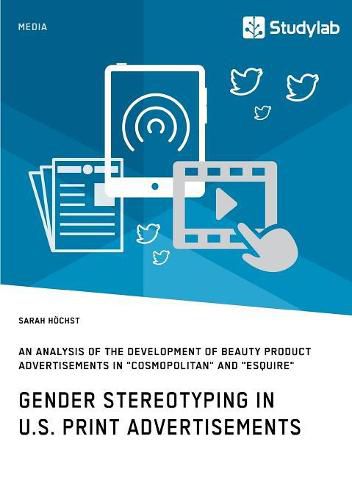Readings Newsletter
Become a Readings Member to make your shopping experience even easier.
Sign in or sign up for free!
You’re not far away from qualifying for FREE standard shipping within Australia
You’ve qualified for FREE standard shipping within Australia
The cart is loading…






This title is printed to order. This book may have been self-published. If so, we cannot guarantee the quality of the content. In the main most books will have gone through the editing process however some may not. We therefore suggest that you be aware of this before ordering this book. If in doubt check either the author or publisher’s details as we are unable to accept any returns unless they are faulty. Please contact us if you have any questions.
In contemporary society advertising is everywhere. Advertisement is always with us, no matter where we are. Although we are aware of the constant bombarding by advertisement everywhere we go, we hardly recognize the influence that it has on us. Thereby, advertising has a great influence on us as individuals and on society as a whole. Through the media, we make sense of our cultural identities, gender and sexuality. The central goal of this book is to examine the development of presentations of gender stereotypes in print advertisements over a time period of 40 years via content analysis of a sample of magazine advertisements. The key questions are: How do U.S. print advertisements construct gender stereotypes? How did these stereotypes develop and do they have an influence on the consumer and the U.S. culture? Content analysis has been proven in decades of research on gender stereotyping as it relates to mass media and because this is an appropriate method to not only focus on images, but also on verbal messages. Magazines present an especially enduring, popular medium, thus this study focuses on gender stereotypes in print advertisements of magazines. More specifically, it focuses on the magazines Cosmopolitan and Esquire due to the varying target audiences, and because they might be a potential indicator of U.S. magazine advertising in general. To further limit the object of investigation, this study concentrates on beauty product advertisements. From the text: - Gender studies; - Cosmopolitan; - Esquire; - Identity; - U.S. Magazines
$9.00 standard shipping within Australia
FREE standard shipping within Australia for orders over $100.00
Express & International shipping calculated at checkout
This title is printed to order. This book may have been self-published. If so, we cannot guarantee the quality of the content. In the main most books will have gone through the editing process however some may not. We therefore suggest that you be aware of this before ordering this book. If in doubt check either the author or publisher’s details as we are unable to accept any returns unless they are faulty. Please contact us if you have any questions.
In contemporary society advertising is everywhere. Advertisement is always with us, no matter where we are. Although we are aware of the constant bombarding by advertisement everywhere we go, we hardly recognize the influence that it has on us. Thereby, advertising has a great influence on us as individuals and on society as a whole. Through the media, we make sense of our cultural identities, gender and sexuality. The central goal of this book is to examine the development of presentations of gender stereotypes in print advertisements over a time period of 40 years via content analysis of a sample of magazine advertisements. The key questions are: How do U.S. print advertisements construct gender stereotypes? How did these stereotypes develop and do they have an influence on the consumer and the U.S. culture? Content analysis has been proven in decades of research on gender stereotyping as it relates to mass media and because this is an appropriate method to not only focus on images, but also on verbal messages. Magazines present an especially enduring, popular medium, thus this study focuses on gender stereotypes in print advertisements of magazines. More specifically, it focuses on the magazines Cosmopolitan and Esquire due to the varying target audiences, and because they might be a potential indicator of U.S. magazine advertising in general. To further limit the object of investigation, this study concentrates on beauty product advertisements. From the text: - Gender studies; - Cosmopolitan; - Esquire; - Identity; - U.S. Magazines